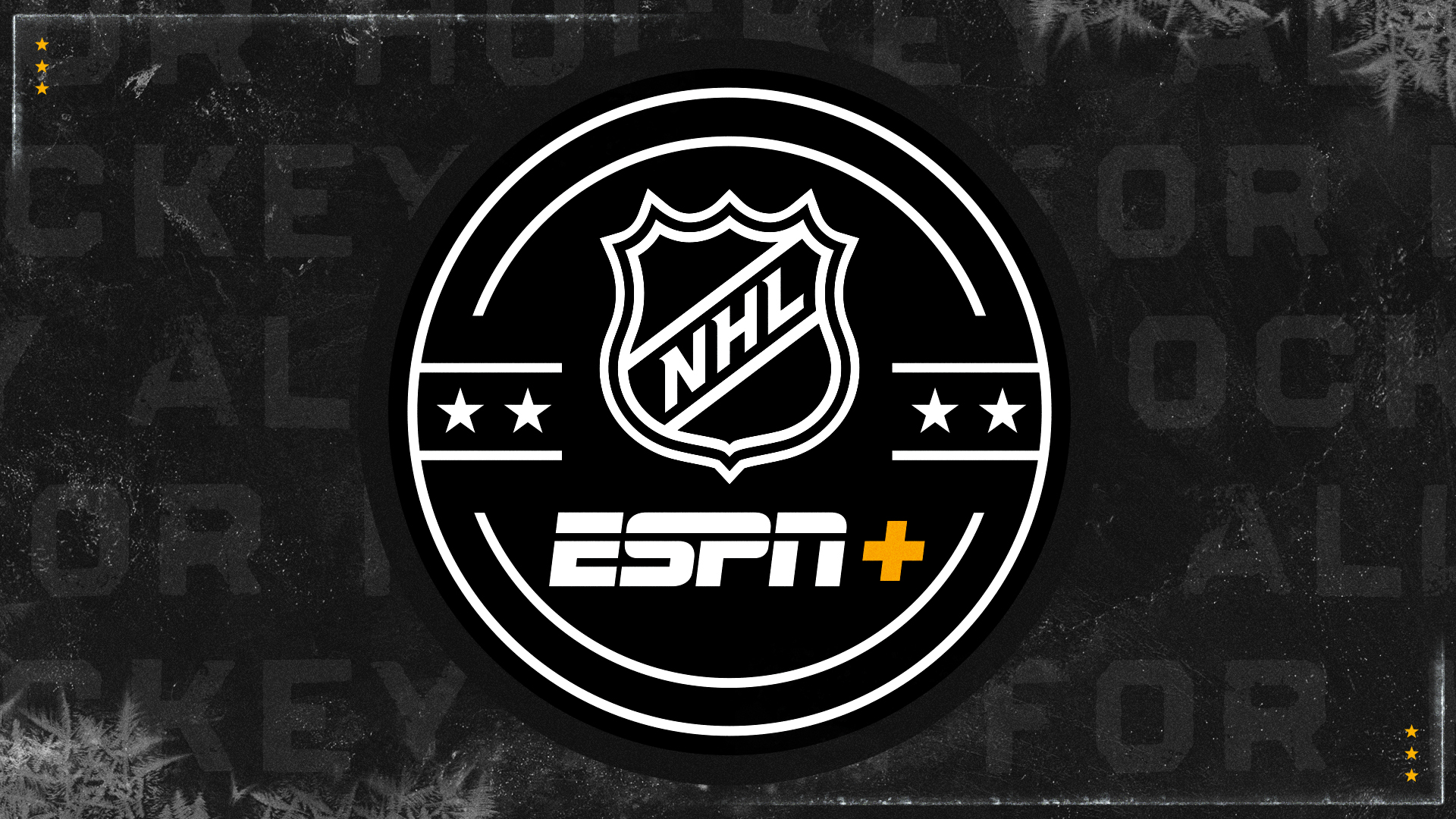Ryan S. Clark
Kristen Shilton
With most teams near the 41-game mark, we’ve reached the halfway point of the 2023-24 NHL season.
That means the return of the report cards. You know the drill. There are some teams that have lived up to the expectations, such as the defending Stanley Cup champion Vegas Golden Knights and a top contender like the New York Rangers. There are some teams that have been a surprise, such as the Philadelphia Flyers and Vancouver Canucks.
And then there are the teams that have had their challenges, including the Buffalo Sabres and Minnesota Wild.
What teams got passing grades? What players are at the top of their class and which ones are in danger of falling behind?
Note: Teams are arrayed alphabetically by letter grade. Ryan S. Clark graded the Pacific and Central Division teams, while Kristen Shilton graded the Metropolitan and Atlantic Division teams. Preseason over/unders are courtesy of ESPN BET. Prior grade refers to the quarter mark.
Jump to:
ANA | ARI | BOS | BUF
CGY | CAR | CHI | COL
CBJ | DAL | DET | EDM
FLA | LA | MIN | MTL
NSH | NJ | NYI | NYR
OTT | PHI | PIT | SJ
SEA | STL | TB | TOR
VAN | VGS | WSH | WPG

A grades
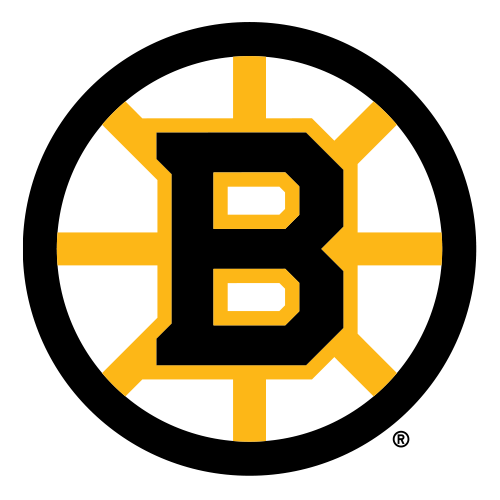
Record: 24-8-8
Preseason over/under: 99.5
Current points pace: 115
Class president: David Pastrnak. We’d be remiss not to mention Jeremy Swayman here too because the netminder has been sharp . But Pastrnak is something special. He needed just 35 games to hit the 50-point mark (joining Brad Marchand as the only Bruin to reach the threshold that quickly since 1995-96) and Pastrnak delivers in every facet for Boston — from 5-on-5 to the power play — while logging nearly 20 minutes of ice time per game. The Bruins can count on Pastrnak to light a spark when they need it.
In danger of failing: Matt Grzelcyk. Boston’s veteran blueliner has settled into a third-pairing slot following his multigame absence (upper-body injury) in late December and declining play before that. Grzelcyk totaled just one goal and three points through the Bruins’ first 22 games, and averaged only 17 minutes; even in that more sheltered role he wasn’t excelling. Boston is one of the league’s stingiest teams thanks to a robust top-four and excellent goaltending. If Grzelcyk can reestablish his game, it would be an added bonus for Boston’s Cup chances.
Grade: A (first-quarter grade: A-). It feels nitpicky to point out a player failing to keep up in Boston because the Bruins have been sufficiently solid across the board. Their two brief losing streaks have been sandwiched between extended stretches of strong success that’s not contingent on any one factor or players; it’s a true collective effort that’s powered the Bruins to stay near the top of league standings. And there’s no signs to suggest Boston will be abandoning that perch anytime soon.
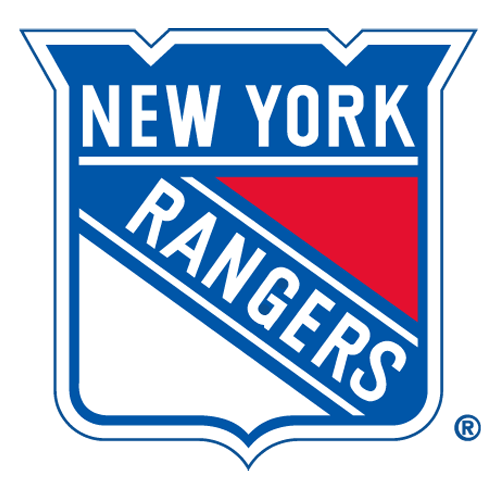
Record: 26-11-2
Preseason over/under: 103.5
Current points pace: 114
Editor’s Picks
2 Related
In danger of failing: Blake Wheeler. The Rangers expected that adding Wheeler would provide depth up front and give them a versatile asset to move throughout the lineup. Instead, Wheeler has been shuffled from one line to another as New York tries to squeeze more out of him. Wheeler showed last season in Winnipeg that he could still play a solid middle-six role by generating 55 points in 72 games; he’s managed only 15 points in New York, and hasn’t offered the Rangers nearly as much help as the team might have liked. Wheeler will have to show what’s left in his tank when the intensity ramps up down the stretch.
Grade: A (first-quarter grade: A-). New York has been near the top of the standings all season. And for once, it’s not just because of elite goaltending from Igor Shesterkin. Granted, the netminder is having a solid year in his own right, but the Rangers are greater than any one player or position. They’re top 10 in scoring and goals against, have one of the best power plays and penalty kills in the NHL, and are dialed in defensively. There’s punch and physicality from the blue line that’s complementing the Rangers’ sensational scorers. That sort of balance could potentially take New York a long way.

Record: 27-11-3
Preseason over/under: 89.5
Current points pace: 114
Class president: Quinn Hughes. A season that started with him being named captain has also seen him lead a team contending for the division title, the President’s Trophy and the Stanley Cup after missing the playoffs for three straight seasons. His partnership with Filip Hronek has made them one of the most formidable defensive pairings in the league. His case for the Norris Trophy — and possibly the Hart — is powered by the fact he’s doing all this while flirting with a 100-point season.
In danger of failing: Andrei Kuzmenko. It was just last year when Kuzmenko was being touted as one of the best bargains in the NHL. The Canucks signed the Russian winger to a one-year contract worth $950,000 that with bonuses increased to $1.8 million — only to watch him score a team-high 39 goals. That led to Kuzmenko signing a two-year contract worth $5.5 million annually — only to see him be on pace for 17 goals. He’s been scratched five times this season.
Grade: A (first-quarter grade: A). The Canucks’ start led to questions about whether it was just a hot streak or the start of something more. The Canucks have since become another Western Conference team that has numerous scoring options, a defensive structure that has brought results and a level of goaltending that makes them a well-rounded threat. In fact, the Canucks have been so consistent that their longest losing streak is two games. The West was already crowded with quite a few serious title challengers, and appears to have one more in the Canucks.

Record: 23-12-5
Preseason over/under: 103.5
Current points pace: 105
Class president: Jack Eichel. What he has done this season has been something of an evolution. Naturally, the discussion around Eichel is going to center around his offensive production. He’s on pace to score 37 goals and finish with 86 points, which would be career highs in both categories. Yet the part of Eichel’s game that might not receive as much attention would be his two-way ability. It was on display throughout Vegas’ Stanley Cup run last season, and it’s been that way again, with Eichel being a close second behind William Karlsson in short-handed ice time per game.
In danger of failing: Chandler Stephenson. It’s not that he hasn’t been productive. It’s just that Stephenson runs the risk of falling short of what he’s done the past two seasons, which saw him record 60 points in each campaign (he’s on pace for 39). Stephenson is capable of scoring more than 10 points in a month, something he has done multiple times with the Golden Knights, so a turnaround is certainly possible.
Grade: A (first-quarter grade: A). The factors that allowed the Golden Knights to win their first Stanley Cup could play a role in them winning a second straight title. There’s a balance with how they score, in that offensive contributions could come from one of their four forward lines or three defensive pairings. It’s the same balance that applies to their defensive principles in how their forwards and defensemen work in a five-player structure. And they have a strong goaltending tandem between last season’s All-Star Logan Thompson and Cup run hero Adin Hill.

Record: 27-9-4
Preseason over/under: 92
Current points pace: 119
Class president: Connor Hellebuyck. New long-term contract aside, Hellebuyck is having what could end up being one of the strongest seasons of his career. He’s on pace to win 42 games, which would be the second time in his career he’s surpassed the 40-win mark. It’s also possible he could finish with the lowest goals-against average and highest save percentage of career (his current career bests are 2.34 and .924, respectively). Hitting those marks could strengthen his case for the Vezina and above all, the Jets’ bid to make a lengthy playoff run.
In danger of failing: Logan Stanley. There was a time when it appeared as if Stanley was about to force his way into a top-four spot. This season, however, has seen him fall farther down the depth chart. The Jets already have a top four that’s played a vital role in why they are in the top 10 in terms of allowing the fewest shots and scoring chances per 60 minutes in 5-on-5 play. And with Dylan Samberg and Nate Schmidt providing consistency in the third pairing, it has led to Stanley having limited opportunities, as evidenced by the number of games he’s played this season (seven).
Grade: A (first-quarter grade: A-). They’re in that class of team that could win their division, the conference and perhaps the Stanley Cup. And they’ve done part of this without Kyle Connor, who sustained a knee injury in December. While Connor is expected to return this season, the Jets are showing they have the necessary depth to receive contributions throughout their lineup while having a defensive structure that limits chances. This means Hellebuyck could have a lighter overall workload when compared to previous seasons.

Record: 26-12-3
Preseason over/under: 107.5
Current points pace: 110
Class president: Nathan MacKinnon. MacKinnon has looked unstoppable before. But this iteration of MacKinnon might be the most consistently dominant he has looked throughout his decade in the NHL. Physicality, playmaking, power, scoring and speed have been hallmarks of MacKinnon’s game. But to see him use all of those traits at once — sometimes in the same shift — is what has him in the Hart Trophy discussion, and has people talking seriously about the the Avs winning a second title in three seasons.
In danger of failing: Ryan Johansen. There have been seven times in his career when he has reached the 50-point mark. It appears this season, however, might not be one of them. While he’s on pace to score 23 goals, Johansen is also on pace for 31 points. Another detail that underscores his rough start with the Avs is that he’s 11th in average ice time among Avs players with more than 30 games this season. Johansen’s 14:08 in average ice time is last among No. 2 centers in the Central Division.
Grade: A- (first-quarter grade: A-). Count them among the teams that could win the division, the conference, the President’s Trophy and the Stanley Cup. They could also see MacKinnon and Cale Makar win major individual awards such as the Hart and Norris Trophy. But they’re also capable of being a bit bizarre at times. Their five games between Dec. 29 and Jan. 6 are proof. It’s a stretch that saw the Avs win four in a row and give up 10 total goals — only to give up eight goals in the fifth game. Plus, they’re still trying to find consistency with their goaltending and secondary scoring.
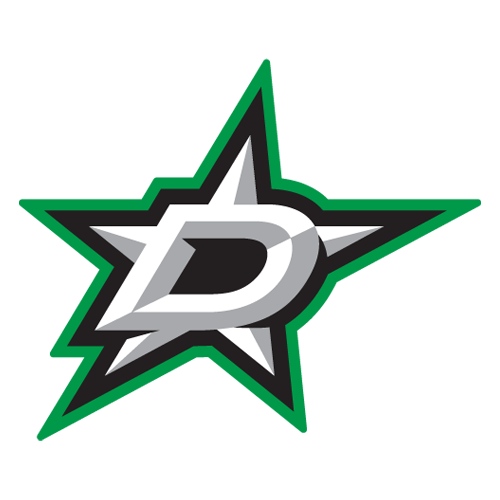
Record: 23-11-5
Preseason over/under: 105.5
Current points pace: 107
Class president: Matt Duchene. No one player or set of players is responsible for how the Stars score goals and win games. It’s become a collective, and Duchene might be the strongest example of how the Stars function. He’s the latest player to come to Dallas (via free agency this offseason following a buyout by the Predators), and what he’s done has placed him in a position to finish with 74 points, which would be the second-most in a single season in his career. He’s one of seven players with more than 10 goals, and one of nine with more than 20 points for a team that relies on the group mentality to succeed.
In danger of failing: Ty Dellandrea. Another detail that has seen the Stars transform into Stanley Cup contenders is the ability to develop and draft players. Dellandrea, who was their first-round pick in 2018, was thought to be the next player from that assembly line who could follow the same path. He’s endured a challenging season with one goal and two points in 19 games, compared to what he did last season, when he had nine goals and 28 points.
Grade: A- (first-quarter grade: A). After reaching the Western Conference finals last year, the Stars have continued to show why they remain in the Cup contender discussion. They’ve relied on a balanced offensive approach and a defensive structure that’s one of the best in the NHL when it comes to allowing scoring chances per 60. They’ve also done this while Jake Oettinger posted a .880 save percentage in November and December before he suffered an injury against Ottawa on Dec. 15.
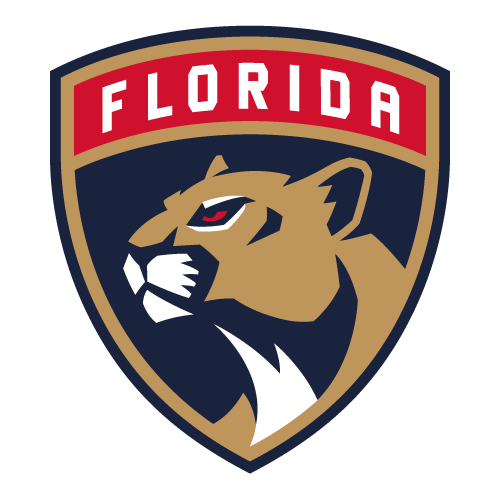
Record: 26-12-2
Preseason over/under: 99
Current points pace: 111
Watch NHL games on ESPN networks
This season will include 100 exclusive regular-season games across ESPN, ESPN+, Hulu and ABC. More than 1,050 out-of-market games will be available to ESPN+ subscribers via NHL PowerPlay on ESPN+.
• How to watch
• Subscribe to ESPN+
• Stream the NHL on ESPN
Class president: Sam Reinhart. There might not be a more versatile forward in the league than Reinhart — which is saying something given the presence of Aleksander Barkov on this team. He’s hovered near the top 10 in league scoring while on pace for a 50-plus goal season, individual milestones that have powered the Panthers’ offensive attack all year. And Reinhart isn’t padding his stats on the power play, either. He’s a consummate threat at 5-on-5 (as playmaker and goal scorer) without sacrificing the details of a solid defensive game. And Reinhart is tied for the league lead in game-winning goals (with six), just to underscore his value as Florida’s top-tier performer to date.
In danger of failing: Oliver Ekman-Larsson. It’s not that Ekman-Larsson hasn’t had his moments. Florida could just use more of his best, more often. Ekman-Larsson can be prone to poor stretches where he feels like a liability (even from a rather protected third-pairing spot) in what is an otherwise sturdy Panthers’ defense. He came to Florida this season hoping to prove there was more to his game than what the final years in Vancouver showed, and while there’s been flashes of that turnaround at times, the Panthers will need more of that as they move into the second half.
Grade: A- (first-quarter grade: A-). Florida is much like Boston; not flawless, but difficult to find holes. The Panthers are top three in goals against this season (thanks in part to a solid Sergei Bobrovsky manning the crease), give up among the fewest shots per game (testament to their strong commitment to collective defense), and while Florida could stand to score more often (getting Matthew Tkachuk rolling would help there), the Panthers are pretty good as is. If there was any question their run to a Stanley Cup Final last spring was a one-time fluke, well. Florida’s play so far has certainly answered their naysayers in full.

Record: 20-10-7
Preseason over/under: 100
Current points pace: 104
Class president: Cam Talbot. Is this the year the Kings finally get out of the first round? The only issue that’s loomed larger over the Kings beyond their recent first-round woes is finding answers in goal. They’ve sorted through numerous options, only to end up back at the starting line. Signing Talbot to a one-year deal worth $1 million not only allowed the Kings to find their No. 1 goalie at a team-friendly price, but he’s been great: his 2.17 goals-against average is second in the league, his .923 save percentage third.
In danger of failing: Pierre-Luc Dubois. Trading for Dubois and then signing him to an eight-year deal worth $8.5 million annually was another sign that the Kings are trying to win now and for the future. He’s given the Kings one of the strongest center setups in the NHL, as they’re able to stack Dubois with Phillip Danault and Anze Kopitar. But Dubois’ start has been a bit slow compared to previous seasons. He’s on pace to score 16 goals and 36 points, coming off consecutive 60-point seasons and has scoring more than 48 points in five of his past six campaigns.
Grade: A- (first-quarter grade: A). They’re another team that has a balanced scoring approach, which means they rely upon the collective rather than a few individuals. They’re seeing homegrown talent continue to mesh with players they’ve brought in from the outside. And now that they are finally getting the goaltending that has eluded them the past few years, it’s possible the Kings could have their best team since the last team that advanced beyond the first round — which was also the last time they won the Stanley Cup.

B grades

Record: 22-13-5
Preseason over/under: 108.5
Current points pace: 101
Class president: Sebastian Aho. Carolina would be fully adrift this season without Aho. The team’s top-line center has been a dominant force at both ends of the ice to lead the squad in goals (15), assists (28) and points (43) through 35 games, and place himself top 20 in the NHL in points. When the Hurricanes have battled adversity in the first half, it’s been Aho steadying the offense and putting Carolina on track for a recent run of success that’s put it back in the Metropolitan Division playoff race. Where Aho goes, so do the Hurricanes.
In danger of failing: Tony DeAngelo. It’s been a rough couple of months for DeAngelo in what Carolina had hoped would be a promising season for its blueliner. DeAngelo struggled immediately, a frequent liability in the D zone without a clearly defined role within Carolina’s stacked back end. It’s little wonder that DeAngelo swiftly became a healthy scratch and has been watching from the press box more and more often throughout the first half. Registering just nine points and producing a minus-10 rating through 20 games isn’t the sort of output Carolina should have expected from DeAngelo, and he’ll have a long way to go to work himself back into coach Rod Brind’Amour’s good graces.
Grade: B+ (first-quarter grade: B-). Carolina turned its season around after a strange run through October where the usually defensive-minded Hurricanes were the NHL’s leakiest team. Since November, Carolina has been near the top 10 in scoring and defense, and look much closer to the club we saw reach the Eastern Conference finals last spring. The Hurricanes have been through their share of difficulties in net, from Antti Raanta’s struggles to Frederik Andersen’s health issues, but the play of Pyotr Kochetkov has settled things down in the crease and Carolina has reaped benefits in every facet, from its top-end skaters producing and decent secondary scoring. The results continue to speak for themselves in Carolina’s dominant stretch of late.
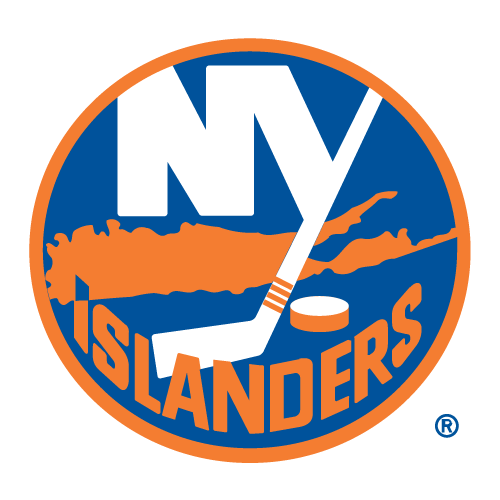
Record: 18-12-10
Preseason over/under: 93
Current points pace: 94
Class president: Noah Dobson. New York’s top blueliner is having the definition of a breakout season. And the Islanders couldn’t have asked for it to come at a better time. Adam Pelech and Ryan Pulock have both been out with injuries, and Dobson has filled the void in a major way with arguably the most consistent hockey of his career. Not only is Dobson shouldering over 25 minutes per game, he’s quarterbacking the Islanders’ top power-play unit and averages a point per game to sit third among New York’s skaters in offensive output. The Islanders are fortunate Dobson picked this moment to flourish.
In danger of failing: Anders Lee. It’s been an odd start for the Islanders’ captain. He was stagnant offensively out of the gate, and couldn’t seem to find a groove as time went on, to the point Lee was herded throughout the lineup by coach Lane Lambert to find a spot where he might click. As it is, Lee managed just 16 points in 38 games despite seeing time on the team’s top line with Mathew Barzal and Bo Horvat (both of whom have been terrific). Can Lee find a way to take advantage of his opportunities and capitalize on what his linemates provide? That would be the type of boost New York needs from its leader.
Grade: B+ (first–quarter grade: B-). The Islanders have been humming along in typically under-the-radar fashion, and it suits them. We know New York isn’t flashy. Yet this season it has had more offensive spark thanks to Barzal and Horvat putting up solid numbers, and credit to New York for translating its offensive success into an improved power play, too. The Islanders have benefited too from Ilya Sorokin capabally shouldering a heavy workload in net (including his current run of eight consecutive starts) while backup Semyon Varlamov recovers from injury. There’s no perfect option to fill the No. 2 slot until Varlamov returns. Might that be a problem as the second half gets going? Definitely. And regardless of who’s in the crease, New York must focus on allowing fewer chances in front (it is second-worst in shots against, after all). Still, a return to the postseason still looks and feels absolutely possible for the Islanders.
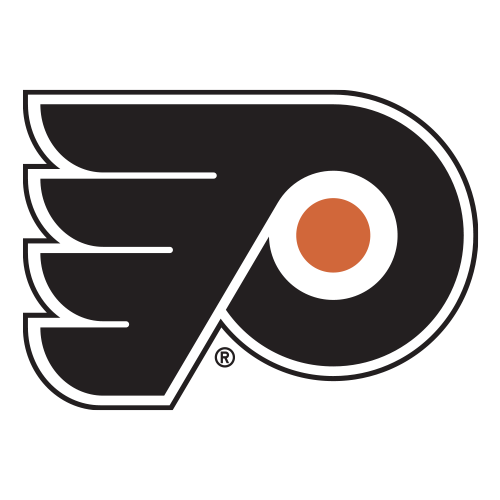
Record: 20-14-6
Preseason over/under: 74
Current points pace: 94
Class president: Travis Konecny. There was a stretch early this season where Konecny was actually co-leading the NHL in goals. It’s been that kind of half for the Flyers’ forward, where pucks are finding the back of the net and his confidence appears to be skyrocketing. Konecny does the majority of his damage at 5-on-5, and the nearly point-per-game pace has been a welcome boost for Philadelphia in a surprisingly competitive season. If Konecny keeps it up, he should easily surpass all previous career bests (31 goals, 61 points) to set new and well-earned personal benchmarks.
In danger of failing: Cam Atkinson. Philadelphia was rightly looking forward to having a healthy Atkinson back in the fold. The excitement was short-lived. After collecting eight goals in 15 games, Atkinson has failed to light the lamp since, while tucking in just six points total going back to Nov. 11. Coach John Tortorella had finally seen enough and made Atkinson a healthy scratch last week, with the only explanation being that Atkinson “knew why.” The answer couldn’t be more clear. Given Atkinson’s talent and what the rest of his teammates have been able to do, putting the team in a better-than-anticipated position, there’s few excuses to make for his lack of contribution too.
Grade: B+ (first quarter grade: B+). Whatever was expected of Philadelphia in the first half of this season, it probably wasn’t “being in a playoff spot at midseason.” Yet there the Flyers are, holding down a playoff position while playing good, competitive hockey on a nightly basis. Credit to Tortorella for not letting the term “rebuild” be a dirty word in Philadelphia’s room. Even if the club is technically in a transitional state — and could face further changes ahead of the trade deadline, beyond the shocking Cutter Gauthier-Jamie Drysdale trade Monday — there’s no reason not to give it their all against every opponent. Sure, the Flyers aren’t jumping off the page in many areas (their power play is particularly dismal, which Drysdale could help) but Philadelphia is rolling over for anyone — and it’s made them an underdog worth rooting for.
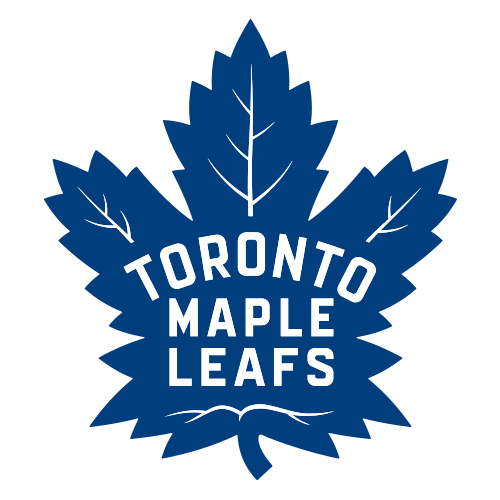
Record: 21-10-7
Preseason over/under: 106.5
Current points pace: 106
Editor’s Picks
2 Related
In danger of failing: David Kampf. This was a tough designation to make for Toronto because clearly, until last week, it would have been Ilya Samsonov by a country mile. Now that Samsonov has been waived and demoted to the AHL, it’s Kampf we’ll put under the microscope. Kampf had been one of the Leafs’ most reliable middle-six skaters since joining the team, and could seemingly excel in any role. That’s changed this season to the point that Keefe felt the need to healthy scratch the now-fourth-line Kampf to send a message about accountability. Kampf hasn’t shown the same dexterity and defensive toughness exhibited in seasons past, and Toronto has seen its play down the middle suffer at times because of it. Kampf recently made a strong return to the lineup, which suggests he can learn from a difficult opening stretch. That would be music to the Leafs’ ears.
Grade: B+ (first–quarter grade: B). Toronto falls just shy of the A-level here because of its nasty habit of performing poorly against opponents from whom they should be taking points. The Leafs have blown enough leads to last an entire year, and while they are an undoubtedly good team, it feels as if they have left too many wins behind in the wake of bad finishes. If the Leafs can rectify that and put some lasting consistency in place, they will challenge for a top spot in the Eastern Conference. When you’ve got Nylander and Matthews playing as they are, it’s a solid foundation for success.

Record: 20-17-2
Preseason over/under: 77.5
Current points pace: 88
Class president: Connor Ingram. Everything the Coyotes did in the offseason created the belief that they could potentially have one of their strongest seasons in recent memory. And that has been the case. One of the early challenges they faced in tapping into that potential was a lack of consistent goaltending. Soon, the Coyotes found their answer with Ingram. He’s already doubled his win total from last season, and after entering this season with a career .893 save percentage, he’s boasting a .919 save percentage through 22 games.
In danger of failing: Jason Zucker. A 27-goal scorer last season, Zucker’s addition created the notion that the Coyotes could have another top-six winger who could offer another dimension beyond Clayton Keller. Zucker has struggled to hit the heights of last season, with six goals and 12 points through 29 games. He’s on pace to finish with 17 goals, though the team hopes he’ll hit another gear and reach the 20-goal mark for the seventh time in his career.
Grade: B (first-quarter grade: B). They entered January with 19 wins and need just nine to match what they did all of last season. What the Coyotes have accomplished is a contrast to the past few years when they’ve been a lottery team rather than one trying to reach the postseason. They’ve found a way to mesh their homegrown players with their offseason activity to create a team that is expected to be in a tight race to make the playoffs for the first time since the 2019-20 season.

Record: 22-18-1
Preseason over/under: 87
Current points pace: 90
Class president: Filip Forsberg. At one point this season, Forsberg was on pace to surpass 100 points for the first time in his career. He’s since cooled, but is still projected to hit a career-high 92 points. Furthermore, Forsberg has already matched his point total from last season in 12 fewer games. His performances have become even more valuable to the Preds as they remain in the lead in the wild-card race but sit five points out of third in the Central.
In danger of failing: Jusso Parssinen. A year ago, Parssinen was one of the bigger surprises of the rookie class, given he was a seventh-rounder who averaged 0.56 points per game in 45 games. This season has seen that figure dip to 0.24 points per game through his first 36 games. Something that helped Parssinen last season was scoring 12 points in January. Could he do the same as the Predators look to return to the playoffs after missing last season?
Grade: B (first-quarter grade: D). Hiring Andrew Brunette came with the understanding the Predators would score goals, because that’s what the Panthers did when Brunette was their interim coach for a season, and it’s what the Devils did when he was an assistant. They’ve gone from averaging 2.72 goals per game last season to scoring 3.10 per contest this season. But that comes with the caveat that the Preds allow 3.13 goals per game. Their differential of minus-0.03 is the tightest differential in the league; they’ll need to improve on one side of the ice to help bolster their postseason chances.
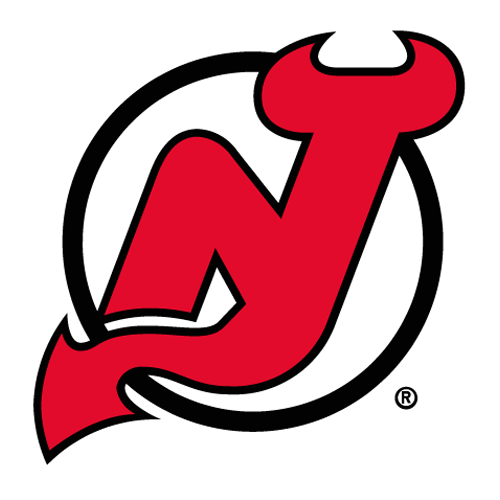
Record: 21-15-2
Preseason over/under: 106
Current points pace: 95
Class president: Jack Hughes. The Devils’ top center has been everything for New Jersey, and deserves ample credit for keeping the team at an even keel in a sometimes-rocky first half. Hughes is a dazzling, dominant playmaker and scorer, with a team-leading 15 goals and 45 points through 31 games to prove it. It might have taken Hughes a couple of years to fully adjust at the NHL level. but there’s no denying now that he’s arrived and is playing like the sort of game-changer who will continue to define a franchise for years. Hughes has earned consideration as a Hart Trophy candidate and another nod as an All-Star selection, but an upper-body injury has kept him out of recent games. That’s a tough way for New Jersey to start the second half.
In danger of failing: Vitek Vanecek. New Jersey’s starting goaltender has looked off throughout the season, producing a sub-.900 save percentage and nearly 3.50 goals-against average. His struggles have hurt the Devils, and are surprising given how well Vanecek performed in his first season with the club in 2022-23. Backup Akira Schmid hasn’t shown much either, and that’s put increased pressure on Vanecek to improve — or else New Jersey will have to look into another option in net before the trade deadline to keep its postseason hopes alive.
Grade: B (first–quarter grade: C+). The Devils were such an exciting story last season. New Jersey surprised the entire league with a franchise-record win streak to start, and a first-round playoff win over the rival Rangers to end a truly fun campaign. This season hasn’t been quite so sparkly. Defensively, the Devils have developed bad habits, and too often it’s been their power play (granted, the best in the league) that’s held them afloat and masked other clear deficiencies (like goaltending). It’s a fine line to walk, especially when injuries come into play, but there’s also such a depth of talent that you can expect them to stay in the postseason hunt well into spring.

Record: 21-15-1
Preseason over/under: 106.5
Current points pace: 95
Class president: Connor McDavid. Picking a three-time Hart Trophy winner for class president? How groundbreaking. McDavid is doing what McDavid does, which is being the most dangerous player in the game. A 20-point November. A 19-point December. Scoring five points in the first game of January. But it’s more than the points. It’s the fact the Oilers are turning those efforts into victories after a rocky start, as they seek to remain in the postseason hunt.
In danger of failing: Connor Brown. Signing Brown as a UFA was a move that was centered around potential. He was coming off ACL surgery, and the hope was that he could provide the Oilers with another layer of secondary offense given he’s reached double figures five times in his career. Through his first 29 games, Brown hadn’t scored a goal and had three points, while averaging a little more than 14 minutes in ice time per game.
Grade: B- (first-quarter grade: D-). Losing 10 of their first 13 games is what led to Jay Woodcroft being fired and even more questions about whether or not the preseason Cup challenger could climb back into the playoff race. Now that they have Kris Knoblauch in place, the Oilers have looked like one of the most dangerous teams in the NHL. Only the Jets have won more games than the Oilers since they hired Knoblauch. And while the Oilers have bludgeoned teams by averaging more than four goals per game in that time, they’ve also allowed 2.70 goals per game, the NHL’s fifth-lowest rate since Knoblauch’s hire.

Record: 20-15-4
Preseason over/under: 97
Current points pace: 93
Get your favorite live sports, stories and originals with ESPN+, Disney+ and Hulu. Upgrade to a Disney Bundle plan and start streaming something for everyone today!
Class president: Sidney Crosby. It’s not the numbers he generated that makes Crosby invaluable (although his 22 goals are most among Penguins, naturally). No, the truly remarkable thing about Crosby is his will to win, and how he projects that onto his teammates. Pittsburgh’s been marred by inconsistency throughout the first half and it’s Crosby who keeps pulling the Penguins back from the brink. Want proof? How about Crosby outracing an icing call late in Pittsburgh’s wild win over Boston last week to effectively secure the victory? There’s nothing the Penguins’ captain won’t do for his team.
In danger of failing: Ryan Graves. In all fairness, at least Graves is aware. He can admit that since the Penguins signed him to a six-year, $27 million contract last summer, the club hasn’t exactly gotten its money’s worth. It’s not for lack of caring, of course. Graves aspires to be an important part of Pittsburgh’s back end, but lately he’s been stuck in a rut that’s potentially messing with his confidence. The more goals against for which Graves is on the ice, the more his play seems to deteriorate and that’s the last thing Pittsburgh needs. It’s on Graves to find his way back into form, and prove the Penguins were right to invest long term in his potential to bolster their blue line.
Grade: B- (first–quarter grade: C+). Pittsburgh is, by current NHL standards, an old team. It’s not going to win all those battles of the rush. It can’t keep pace in every track meet. The Penguins are steeped in talent — from Crosby to Jake Guentzel to Evgeni Malkin to Kris Letang to Erik Karlsson — but it’s not enough without depth, consistency and collective defensive play. Pittsburgh can be its own worst enemy by doing too much, or not enough, and watching leads they do grab slip away. There were signs in late 2023 of Pittsburgh turning a corner with increased physicality around the net, and beating Boston as it did was a sign of Pittsburgh’s resiliency. Is that enough to put the Pens back in the playoff hunt?

Record: 17-14-9
Preseason over/under: 92
Current points pace: 88
Class president: Joey Daccord. He was the MVP of the Winter Classic and as Kraken play-by-play broadcaster John Forslund said during a recent telecast, “They’ll just chant his name for anything like starting his car.” Daccord has provided the Kraken with stability in net, which has played a significant role in their 10-game points streak after an 8-14-7 start that was hindered by an eight-game losing streak.
In danger of failing: Matty Beniers. The reigning Calder Trophy winner has found his second full NHL season to be challenging. After scoring 24 goals and 57 points last season, Beniers is on pace to finish this season with 11 goals and 38 points. It’s possible that Beniers could find consistency, and boost those numbers as he enters the final months of his entry-level contract.
Grade: B- (first-quarter grade: C-). Kraken coach Dave Hakstol said after their Winter Classic win over the Golden Knights that the Kraken have found their identity. They’re not the team from last season that could score goals in bunches; they must play a game that forces them to find goals in different ways, while still remaining true to their defensive principles. The result of that newfound identity saw the Kraken go on a lengthy point streak, and resurrect their playoff hopes in the process.
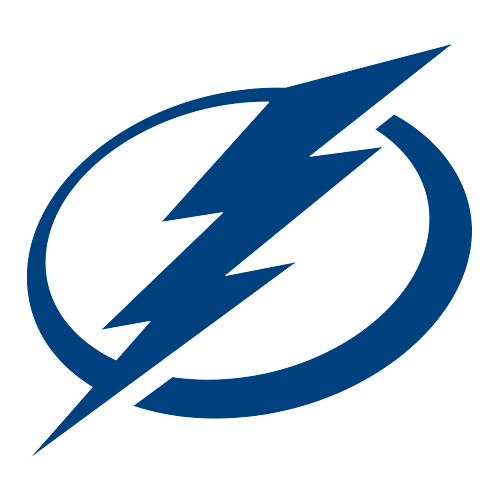
Record: 20-17-5
Preseason over/under: 93
Current points pace: 88
Top stories of the week from 
Get exclusive access to thousands of premium articles a year from top writers.
• Connelly: How did Wolverines win it all? »
• NFL playoff teams and a myth for each »
• Moves for every Premier League team »
More ESPN+ content »
Class president: Nikita Kucherov. Tampa Bay’s top winger has put the Lightning on his back more than once this season. It’s little wonder that Kucherov not only paces his team in goals and points through the first half, but has also spent time leading the entire NHL in the latter category and is in conversation for the Hart Trophy. Kucherov finds ways to have an impact when others don’t, and can expertly challenge goaltenders from the slot area like almost no one else in the NHL. He’s a top-end playmaker with goal-scoring prowess, and when Kucherov puts all his talents on display it’s impossible not to watch in awe.
In danger of failing: Tanner Jeannot. After trading a bevy of draft picks for Jeannot, the Lightning invested in him with a two-year, $5.3 million contract last summer, and should have gotten more out of their winger in the season’s first half (he had just 12 points in 41 games). Now, Jeannot is hurt, sidelined week-to-week after being injured Saturday against Boston. That’s even worse news for a Lightning team that’s crying out for more secondary scoring help. Supporting some of Tampa Bay’s top skaters is where Jeannot should be having an impact when he’s back, and there’s opportunity to put a painstakingly slow start to this season behind him.
Grade: B- (first–quarter grade: B). There’s a small reprieve here for the Lightning because they did have to start the season without goaltender Andrei Vasilevskiy, and the pile of injuries on their back end has been understandably difficult to overcome. However, the Lightning have looked average and often scattered for such a veteran-heavy group. Perhaps that’s the problem. Tampa Bay needs its aging core to perform, and that gets more difficult to see happen year over year, especially when the Lightning don’t have the cap space to bring in as many complementary players as they might like. Other Atlantic Division squads have surged past Tampa Bay — will that carry on to leave the Lightning outside looking in by spring?

Record: 19-13-6
Preseason over/under: 85
Current points pace: 95
Class president: Charlie Lindgren. It’s nice to have high-end scorers (like Alex Ovechkin) lighting up the scoreboard. But when it comes to winning — and allowing those tallies to actually mean something in the grander sense — it’s often goaltending that makes the difference. Such is the case here with Lindgren. He’s been sensational for Washington, and has the top-10 stats to prove it with a .928 save percentage and 2.27 goals-against average. Lindgren has established himself ahead of Darcy Kuemper as the Capitals’ No. 1, and when he’s healthy there’s no denying Lindgren can hold the fort to help Washington toward a win.
In danger of failing: Evgeny Kuznetsov. The numbers simply haven’t been there from Kuznetsov — and that’s with coach Spencer Carbary doing everything possible to put Kuznetsov in position to succeed. When Kuznetsov was recently stuck in an 11-game scoring slump, Carbery moved him from center to wing and reunited him with Ovechkin to generate chemistry. It didn’t work, exactly (Carbery described the experiment as “OK”). That’s about as good a word as you could use on Kuznetsov overall, too, with just 13 points in 32 games. Washington is fortunate to have other scorers going at this stage, but Kuznetsov absolutely must pick up his pace.
Grade: B- (first–quarter grade: B-). Washington has defined “streaky” this season. The Caps will enter a window of success, only to have it quickly shatter into another losing stretch. They have had unexpected setbacks like losing Niklas Backstrom for the season and grappling with injuries to top players like T.J. Oshie. But Washington has good, young talents and its goaltending (when Lindgren is available) can be a difference-making advantage. Gone are the days when these Capitals can just rely on Ovechkin to carry the load. It must be an all-hands-on-deck sort of philosophy that will ultimately allow Washington to challenge for the postseason.

C grades
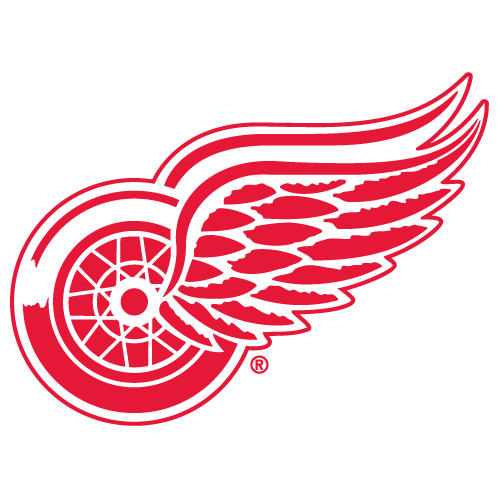
Record: 20-16-4
Preseason over/under: 86.5
Current points pace: 90
Class president: Alex DeBrincat. Now, this was tough, because Red Wings’ defenseman Jake Walman was absolutely the club’s most improved player of the first half, and deserves some love in this category. When it comes to overall consistency and high-end play though, it’s been DeBrincat all the way. He was a catalyst in the Red Wings’ red-hot start, outshooting and outscoring just about every team in the league; he also helped convince Patrick Kane to join Detroit as a free agent. While DeBrincat’s teammates have slowed their output, he’s remained dangerous as ever with the puck. Detroit’s hopes of reaching the postseason hinge heavily on DeBrincat remaining an elite-level threat.
In danger of failing: Ville Husso. The Red Wings’ top netminder hasn’t looked the part this season, even before suffering a lower-body injury and being moved to IR in December. A year ago, it was Husso standing tall to give Detroit a chance every game, but his numbers have plummeted to a point where the Red Wings are continuously rotating goalies just trying to find a solution to one of their most glaring issues (i.e., keeping pucks out of the net). Husso and James Reimer have been one of the worst statistical goalie tandems in the league, and while Alex Lyon might be able to help (when he’s healthy), Husso needs to step up again to make a difference.
Grade: C+ (first–quarter grade: B-). Detroit appeared to put the league on notice with a 5-1-0 start that could have signaled it was back and ready to reclaim a playoff spot. That messaging quickly gave way to the much more troubling narrative of: What’s wrong with the Red Wings? The answer is still being unfurled. Detroit has dealt with injuries, but it’s general inconsistency has put it deep into the mushy middle of the standings. The Red Wings being eighth-worst in goals against and seventh-worst in shots against is not the way to get ahead. Detroit entered calendar 2024 having not won consecutive games in over a month. That’s no way to start the new year, and we’ll see what sort of resolve the Red Wings have in them to make a sharp turn upward.

Record: 17-18-4
Preseason over/under: 97
Current points pace: 80
Class president: Brock Faber. Every team is trying to draft and develop a young defenseman who can come in and play in a top-four role. Faber has given the Wild someone who can play as a top-pairing defenseman, and can eat minutes in nearly every sequence. He leads them in 5-on-5 ice time, short-handed ice time and is third among their defensemen in power-play ice time. He’s also on pace to finish with 40 points.
In danger of failing: Frederick Gaudreau. Part of what makes Gaudreau’s season complicated is that he missed 10 games because of injury. That said, Gaudreau is on pace for six goals in 61 games, which would come out to eight goals if he played all 82 games. A year ago, Gaudreau had a career-high 19 goals, powered by a 13.8% shooting percentage. This season has seen Gaudreau convert 5.8% of his shots for a team that’s in the bottom third of goals per game. A boost from Gaudreau would help solve some issues.
Grade: C+ (first-quarter grade: D). Before they fired Dean Evason, the Wild had issues finding consistency in a number of areas. Since they hired John Hynes on Nov. 27, the Wild have been one of the best teams in the NHL. Only three teams have won more games than the Wild in that span, and they have largely done it with their defensive principles. For the entire season, the Wild are allowing 3.18 goals per game. Yet they have slashed that figure to 2.42 — the fourth-best mark in the NHL — since they hired Hynes. And they’ve done that all while missing players such as Jonas Brodin, Kirill Kaprizov, Jared Spurgeon and Mats Zuccarello at various points.

Record: 17-17-5
Preseason over/under: 73
Current points pace: 82
Class president: Nick Suzuki. There’s not a single thing to highlight for Suzuki. Frankly, the Canadiens’ captain is doing it all. He leads the team in goals and assists through the first half, is excelling in the faceoff dot, shows off excellent playmaking abilities and elevates linemates to the point that Juraj Slafkovsky recently declared Suzuki as Montreal’s best player. The 24-year-old likely doesn’t get the leaguewide credit he deserves because of where the Canadiens sit in the standings, but that shouldn’t detract from how well Suzuki has performed in elevating Montreal.
In danger of failing: Justin Barron. The Canadiens’ goal is seeing progress from their young players to set them up for long-term success. Barron hasn’t been pulling his weight lately. The 22-year-old defender registered just four points in December, and clearly struggled to hold his own defensively. Montreal might not be eyeing a playoff berth in 2024, but that doesn’t lessen the expectation that skaters like Barron continue to show improvement. If he can’t, there are other players the Canadiens can call on to take his place.
Grade: C (first–quarter grade: C+). Montreal is what it is. There are nights where the Canadiens are fun and thriving, and others where the ongoing growing pains of a genuine rebuild are apparent. GM Kent Hughes has shown impressive patience while his team continues to find its identity and get the experience necessary to contend in seasons to come. The future in Montreal should be bright given its youth foundation, assuming, of course, that everyone sticks to the plan.
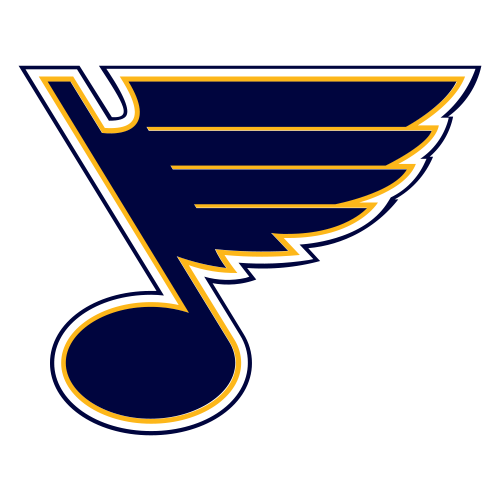
Record: 20-18-1
Preseason over/under: 83.5
Current points pace: 86
Class president: Robert Thomas. He’s two goals away from tying his total from last season, and five shy of setting a career high (21). On the whole, Thomas is on pace to have the best season of his career considering he’s projected to score 35 goals and 88 points. Most of what he has scored has come in even-strength situations (the Blues have the second-to-worst power play in the NHL, so this is no surprise). Those contributions have played a role in why the Blues entered January in wild-card contention.
In danger of failing: Kasperi Kapanen. When the Blues got Kapanen last season, they watched him score eight goals and 14 points in 23 games while also skating more than an extra four minutes of ice time compared to what he had done with the Penguins. This season has seen him go from averaging 0.61 points per game in his 23-game stint last season to 0.32 points per game through 38 games. It places Kapanen on a pace to score nine goals and 26 points in 82 games.
Grade: C (first-quarter grade: B-). Replacing Craig Berube with interim coach Drew Bannister drew mixed opinions. Yet since Bannister was hired on Dec. 13, the Blues have become one of the better teams. Their seven wins in that time are tied for the fifth-most in the league, and it’s helped them remain in the wild-card race. Changing coaches is a move that has worked for other teams seeking to jump start their season. Could the same hold true for a Blues team that has allowed the seventh-fewest goals per game since hiring Bannister?

Record: 17-20-4
Preseason over/under: 94
Current points pace: 76
Class president: Casey Mittelstadt. It’s not just that Mittelstadt has surprisingly emerged as Buffalo’s leading scorer. It’s how he’s done it. Mittelstadt isn’t just (mostly) racking up assists like he did in last season’s breakout campaign. The 25-year-old center is lighting the lamp at a good clip for a team that craves increased firepower. If the versatile Mittelstadt stays consistent, he’ll not only continue to be a key cog in Buffalo’s often-sputtering offense but he’ll surpass a previous career high of 15 goals and set benchmarks to aspire toward through the season half.
In danger of failing: Dylan Cozens. The pressure accompanying a long-term extension can be debilitating. Such was the case for Cozens to start this season. The winger inked a seven-year, $49.7 million deal with Buffalo last February, and the attached expectations seemed to weigh Cozens down out of the gate. He was generating chances without scoring, trying too hard to overcompensate for that lack of production. Cozens appeared to head in a better direction as 2023 came to a close, albeit without results reflecting often enough on the scoresheet. That’s the place Cozens admittedly wants to make his presence felt in the second half.
Grade: C- (first–quarter grade: C-). This was supposed to be Buffalo’s time to end the 12-year playoff drought and inject new life into the conversation around successful Sabres’ hockey. Buffalo has fallen short of those ambitions. The Sabres have talent — from Rasmus Dahlin to Tage Thompson to Jeff Skinner — doing its best to perform, but the self-inflicted wounds have killed Buffalo’s meager momentum too many times. There’s always potential for a second-half surge, of course. Buffalo proved that last season when it fell just shy of a postseason berth. Is that sort of stretch run in the Sabres again?
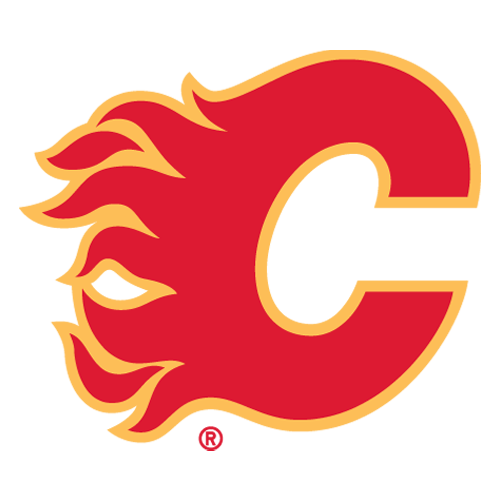
Record: 18-18-5
Preseason over/under: 95
Current points pace: 82
Class president: Blake Coleman. An argument could be made for Elias Lindholm. That said, Coleman is having the strongest season of his career, as the winger is on pace for his first 30-goal campaign. It’s possible Coleman’s exploits could help the Flames remain in the wild-card hunt and give them something to think about when it comes to assessing their playoff chances at the trade deadline.
In danger of failing: Jonathan Huberdeau. A forward earning $10.5 million per season should be scoring either at or above a point-per-game pace. Huberdeau is averaging 0.5 points per game after averaging 0.7 last season, his first in Calgary. His final four seasons in Florida saw him average well more than a point per game, and become one of the game’s most potent wingers. That version of Huberdeau could be the difference between the Flames making the playoffs or narrowly missing out.
Grade: C- (first-quarter grade: C-). The Flames are part of that collection of teams that entered January challenging for a wild-card spot. It’s possible that they might have found a blueprint for how to remain in the playoff race. They won six of their eight games between Dec. 16 and Jan. 4, which was their most consistent stretch of games and their most prolific. The Flames averaged 3.83 goals in those victories — an increase from their season average of 2.97 goals.

D grades

Record: 13-20-9
Preseason over/under: 75
Current points pace: 68
Hockey Fights Cancer and the V Foundation
The NHL, the Players’ Association, and the V Foundation are united in the fight against cancer. Together they are funding game-changing research to help achieve Victory Over Cancer. You can join them in this fight. Visit HockeyFightsCancer.com to donate now.
Class president: Adam Fantilli. It’s no small feat stepping into the NHL at 19 years old, least of all at center. Fantilli has done that — and excelled. The rookie has kept Columbus going despite the backlog of injuries it has faced (including to captain Boone Jenner, who’s having an excellent season but is currently on IR), collecting 11 goals and 24 points in 40 games and earning a promotion onto the Blue Jackets’ top line beside Johnny Gaudreau and Justin Danforth. That goes to show how Fantilli is already earning coach Pascal Vincent’s trust as a reliable pivot who won’t hurt Columbus on the defensive side while pumping up prospects with the puck. The present — and future — is brighter for the Blue Jackets with Fantilli appearing to be a star in the making.
In danger of failing: Alexandre Texier. Columbus needs more from everyone given the laundry list of players sidelined by ailments. This is when Texier should be stepping up, but that has yet to happen. Texier played in Switzerland last season, and returned stateside to start the NHL season with zero points through nine games, despite skating beside Columbus’ top players. Slowly, Texier has been able to generate more opportunities, but not with any amount of consistency — and that’s where he can be frustrating. There is skill and talent there; when will it come together and help the Blue Jackets night in, night out?
Grade: D+ (first-quarter grade: D). The Blue Jackets are doing their best with what they’ve got. The problem is that Columbus hasn’t had its entire roster intact all season — and right now it’s particularly sparse with Patrik Laine, Jenner, Zach Werenski and others on the shelf. Columbus can embrace a next-man-up mentality and stay positive about the development of their young players (see: Fantilli, Kirill Marchenko, etc.), but the first half has had them looking up toward everyone else. That doesn’t project to change much during the second half.

Record: 14-25-1
Preseason over/under: 66.5
Current points pace: 60
Class president: Frank Vatrano. He’s about to have his second straight 20-goal season, the third 20-goal campaign of his career, his first All-Star Game appearance and he’s in contention for his first 40-goal season. Even if the Ducks have since cooled compared to how they performed earlier, Vatrano has remained a constant scoring threat.
In danger of failing: Jakob Silfverberg. It’s possible that this could be his last season in Anaheim and if so, it has a chance to be his most difficult. The pending free agent winger has one goal and seven points through 38 games. Should that pace hold, it would result in Silfverberg finishing with a career-low 15 points. The last time he finished below 20 points was in the truncated 2020-21 season, when he had 16 points in 47 games.
Grade: D (first-quarter grade: B). Winning nine of their first 15 games was followed by an eight-game losing streak, followed by another five-game losing streak, which was then followed by losing five of six games between Dec. 21 and Jan. 3. Injuries to Leo Carlsson, Jamie Drysdale, Troy Terry and Trevor Zegras at various points haven’t helped (and the team traded Drysdale on Monday). But it’s possible that the Ducks could parlay their misfortune into another lottery pick who could help.
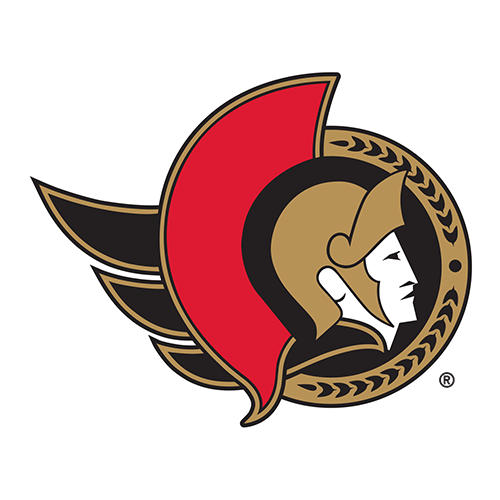
Record: 14-22-0
Preseason over/under: 93.5
Current points pace: 64
Class president: Drake Batherson. Consider the first half of this season a glow-up for Batherson — with the potential to be a career-best campaign by April. Batherson was frustrated by injury and inconsistency last season, and even started out slowly in this one, but he’s been rising to the occasion in a major way for the Senators and seems to have taken particularly well to new coach Jacques Martin. Batherson is on pace to surpass 30 goals for the first time as a pro, and that would be a top achievement given Ottawa’s hopes of reaching the postseason have been blunted by a tumultuous few months.
In danger of failing: Joonas Korpisalo. Perhaps it’s that Korpisalo was signed — by now-former GM Pierre Dorion — to a long-term deal with the expectation he would finally settle the Senators’ goaltending situation. And some nights, Korpisalo is a game-changer for Ottawa. That’s what makes all those other outings where he isn’t so perplexing. The opportunity to be a No. 1 is what Korpisalo wanted, and he’s had the chance to prove himself without fully making a strong case (which isn’t to say backup Anton Forsberg has been much better — but that’s another story). Regardless, Korpisalo has room to improve when it comes to consistency.
Grade: D (first–quarter grade: B-). Ottawa has changed much about itself this season, from owner to coach to general manager to front office personnel. Where that takes them, we don’t know. But where the Senators have been is nowhere good. Yes, they have had Herculean efforts from Tim Stutzle and Brady Tkachuk and others to win games we wouldn’t expect. Yet Ottawa is in the Eastern Conference basement for a reason, and it involves a combination of lackluster defense, goaltending and special teams. What’s next can only involve addressing all those areas, and more, to create some sustained success.

Record: 12-27-2
Preseason over/under: 71
Current points pace: 52
Class president: Connor Bedard. A top-line center who was leading his team in goals, assists, points, power-play points, shots and average ice time among forwards all while being named to the All-Star Game. This is what Bedard’s life looked like until he fractured his jaw, which led to the Blackhawks’ star rookie center being placed on injured reserve. Bedard, who was on pace for 30 goals and 70 points, showed he was capable of handling the demands of being a top-line NHL center. Now it’s a matter of smartly managing his rehab and return to action.
In danger of failing: Arvid Soderblom. Only six goaltenders who have played more than 15 games have a worse GSAA (goals saved above expected) than Soderblom, according to Money Puck. His minus-6.5 GSAA is also a stark contrast to fellow Chicago goalie Petr Mrazek, who has a 1.5 GSAA. There’s also the fact that Soderblom went from a .894 save percentage last season to having a .874 save percentage in what’s roughly been the same amount of games.
Grade: D- (first-quarter grade: D). Rebuilding teams are complex, and the Blackhawks are proof of that in 2023-24. More executives have become open about how the path to long-term success can be achieved by going through those difficult seasons that lead to high draft picks. The Blackhawks are following that path, while also seeing what they have with their young core featuring Bedard, Kevin Korchinski and Alex Vlasic. They were already in contention to have the NHL’s worst record because they have struggled with consistently scoring goals and preventing goals throughout all situations. With Bedard out for an extended period, could they land the No. 1 pick for the second straight offseason?

F grade
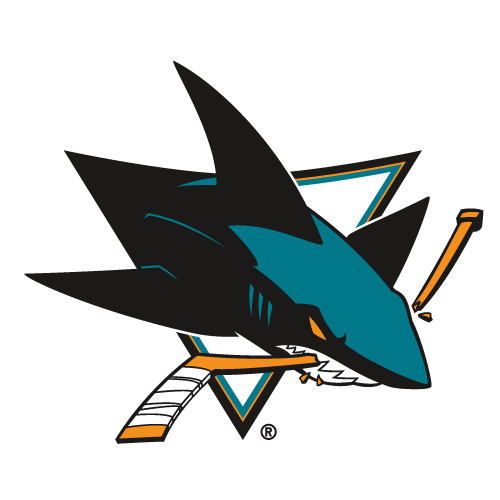
Record: 9-29-3
Preseason over/under: 64.5
Current points pace: 42
Class president: Fabian Zetterlund. What might be lost in one of the more difficult seasons in franchise history is what Zetterlund is doing in his first full season with the team. He’s on pace for 23 goals and 35 points, which is more goals and points than what he had in his NHL career coming into this season.
In danger of failing: Kevin Labanc. The roster has a significant amount of pending UFAs they could hypothetically trade at the deadline in order to receive draft capital in return. A pair of pending UFAs such as Anthony Duclair and Mike Hoffman are both on pace to reach double figures in goals. Labanc, who scored 15 goals last season, is projected to finish the season with two.
Grade: F (first-quarter grade: F). The Sharks are a lottery team and could be for some time. Yet what separates them from others in a similar situation is how they are losing games. They’ve had two 10-game losing streaks, a goal differential of minus-84, they average exactly two goals per game and are projected to finish with one of the lowest point totals in the salary cap era. There are better days ahead, but the current outlook is quite grim.


